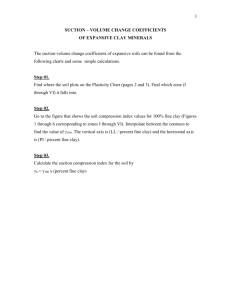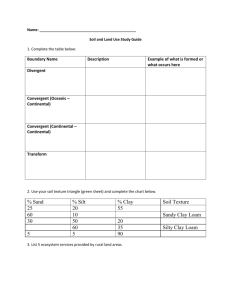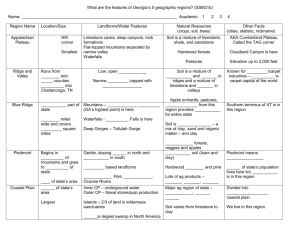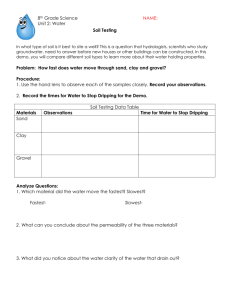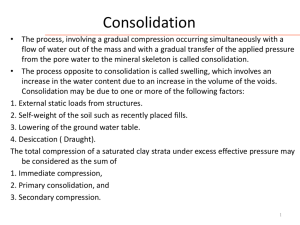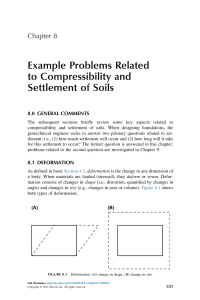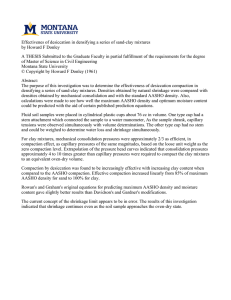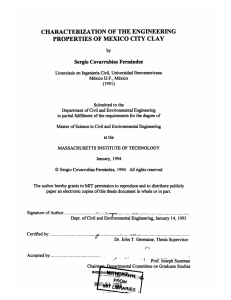Assignment No. 6
advertisement
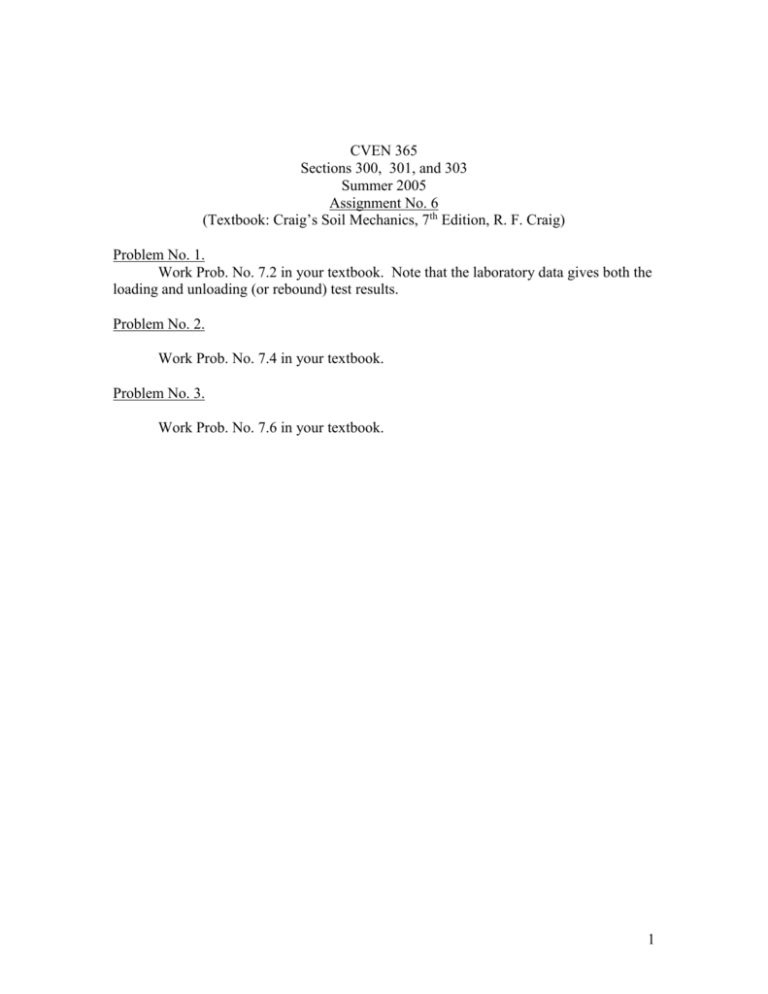
CVEN 365 Sections 300, 301, and 303 Summer 2005 Assignment No. 6 (Textbook: Craig’s Soil Mechanics, 7th Edition, R. F. Craig) Problem No. 1. Work Prob. No. 7.2 in your textbook. Note that the laboratory data gives both the loading and unloading (or rebound) test results. Problem No. 2. Work Prob. No. 7.4 in your textbook. Problem No. 3. Work Prob. No. 7.6 in your textbook. 1 Problem 04. (Consolidation and Settlement) Two nearby building sites are occupied by a building that was completed 10 years ago and a vacant lot where a new building is to be built. They are in a place known for its geological irregularity. The new building is to be 15 stories high and the building will apply pressure to the soil surface of 105 kPa. It will have 1.5 times the load of the old building at Site No.1, where the settlement up to the present time is 0.2 m. 2 The void ratio of the normally consolidated clay at Site No.1 is 0.8 and that at Site No.2 is 0.6 and their measured permeabilities are found to vary as the square of the void ratios. The unit weight of the sand is 17.3 kN/m3 and of the clay is 18.9 kN/m3 at both sites. The compression index of the clay at Site No.1 is 0.41 and at Site No.2 is 0.29. Answer the following questions: a. What is the initial effective stress at the middle of the clay layer at each site? b. What is the change of effective stress in the middle of the clay layer at each site due to the building load? c. What is the maximum settlement that will occur in Site No.1 and in Site No.2? d. What is the percent of the total settlement that has occurred to the present time at Site No.1? e. What is the current dimensionless time constant, T, for the building at Site No.1. (See Table 6.2, pg.179 in your text) f. What is the coefficient of consolidation, cv, of the clay at Site No.1? g. Assuming that the av of the clay is the same at both sites, how long will it take the building at Site No.2 to settle 60 percent of its total settlement? Problem No. 5 (Expansive Clay) of 2 m2 A clay is made up of disk-shaped particles with an average specific surface area . What matric suction will this soil develop at a water content of 30% and g temperature of 25C.? The surface tension is 73 1. 2. 3. 4. dyne . cm ______________________ kPa ______________________ psi ______________________ cm ______________________ pF 3 Problem No. 6 Given: Soil borings on this site have produced the following information on the soils beneath the foundation: Liquid Limit Plastic Limit % - #200 % - 2 Vertical Strain = = = = = 45% 23% 75% 38% 50% of total volume strain Find. Plasticity Index Soil zone No. (I through VI) where the soil plots Soil compression index for 100% fine clay Soil compression index for the soil beneath the foundation The change of pF at the edge of the foundation The volume strain in the soil in the active zone (top 6 feet) (shrinkage) The vertical shrinkage strain of the soil at the edge of the foundation The vertical shrinkage at the edge of the foundation 4
